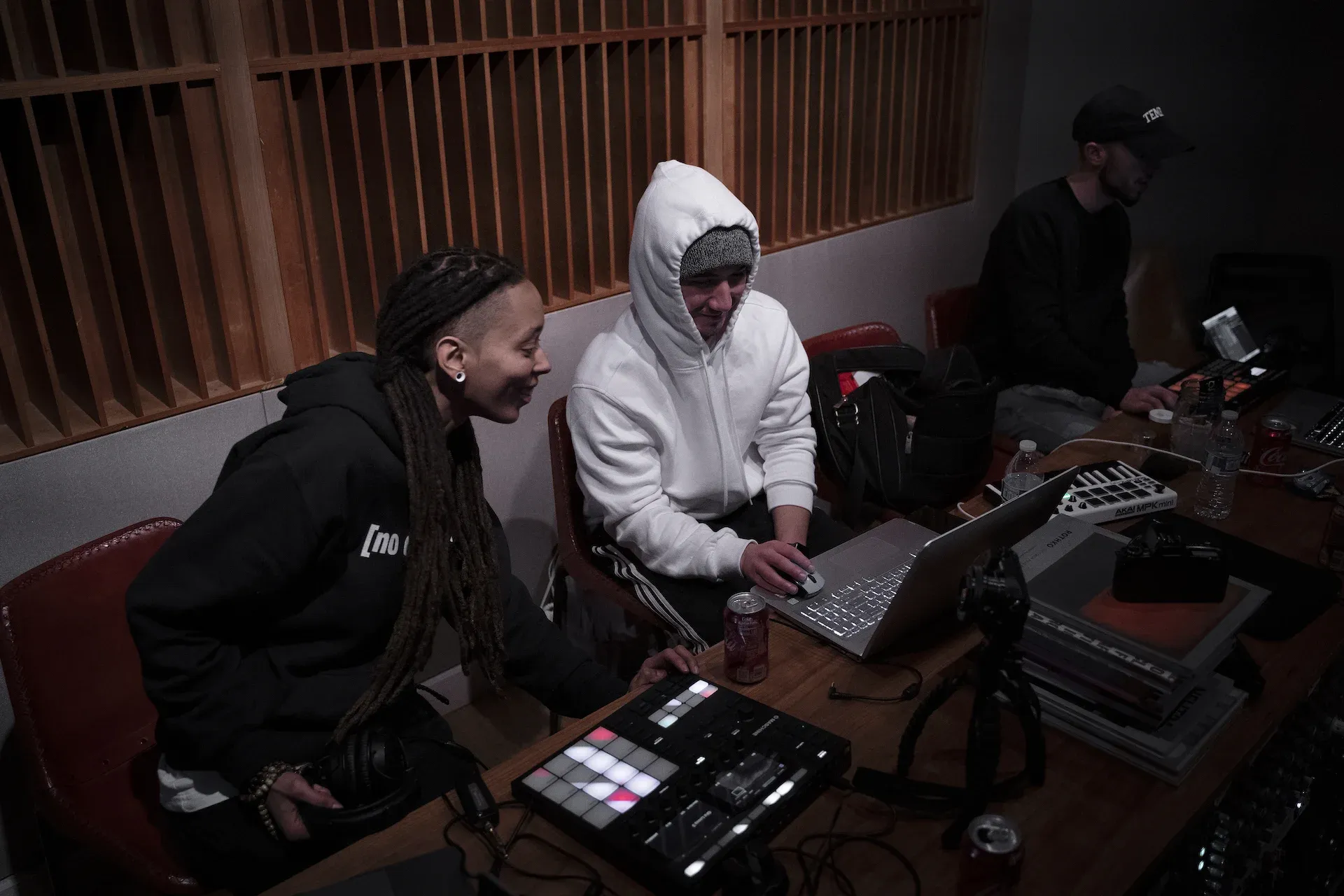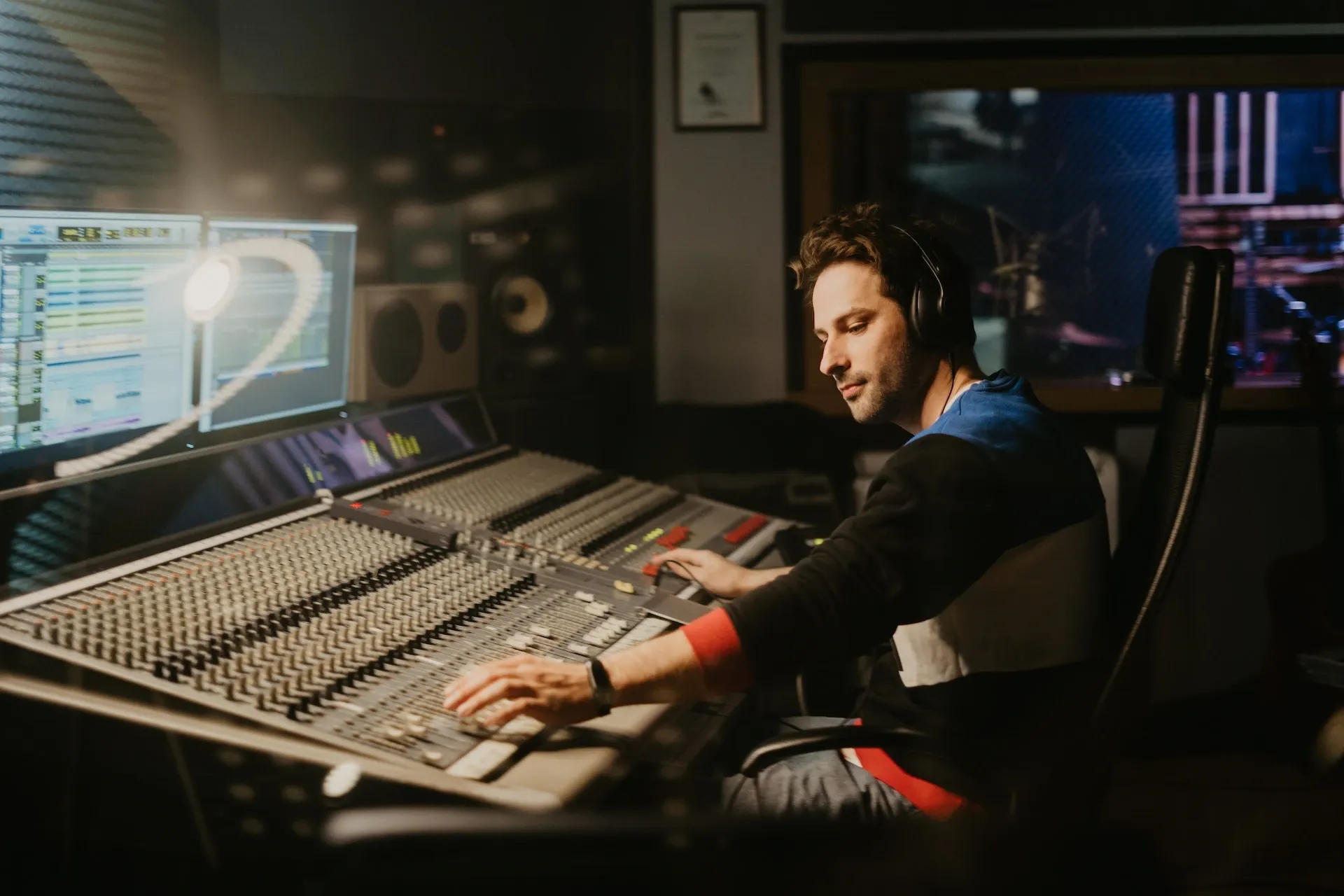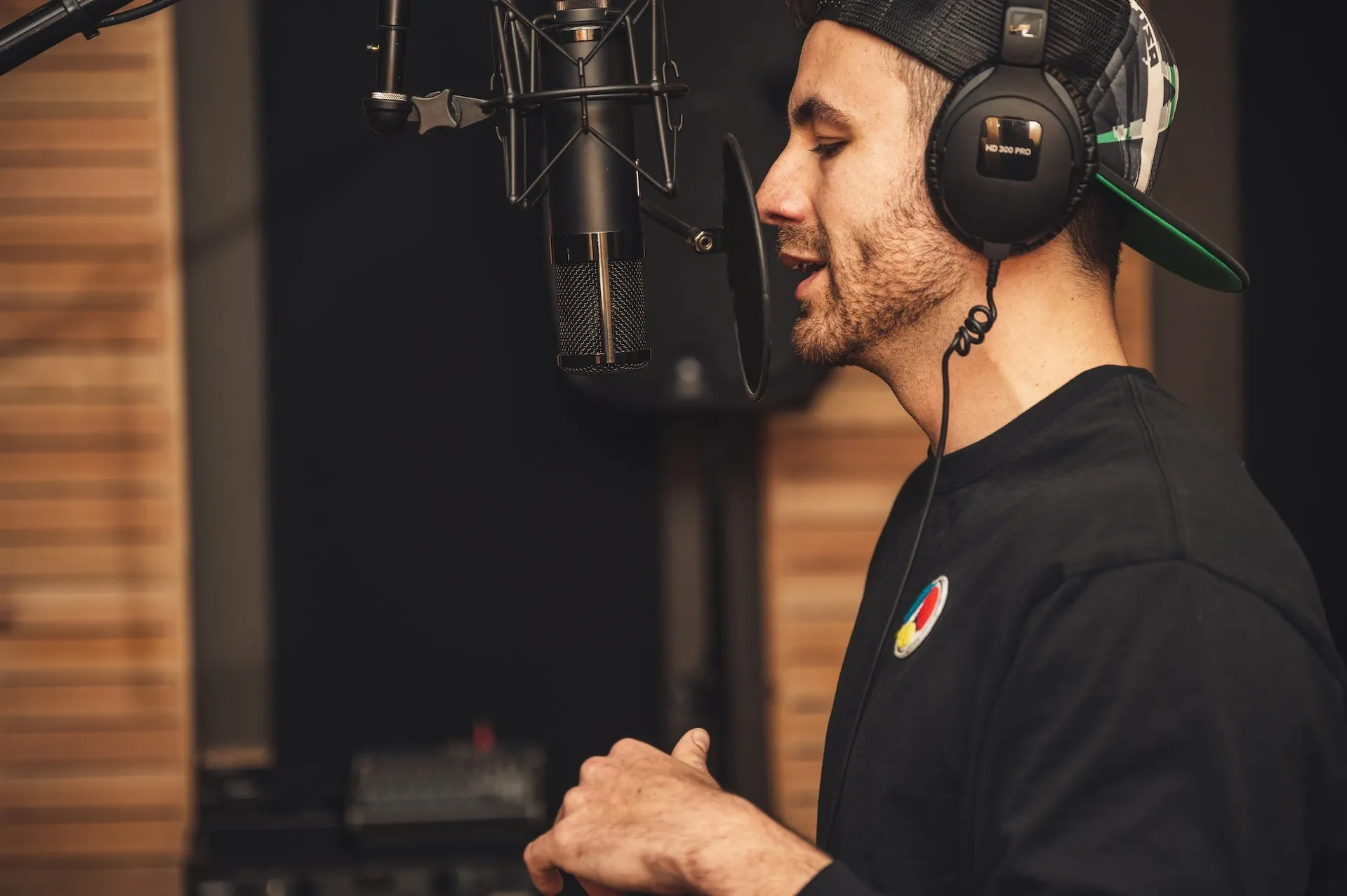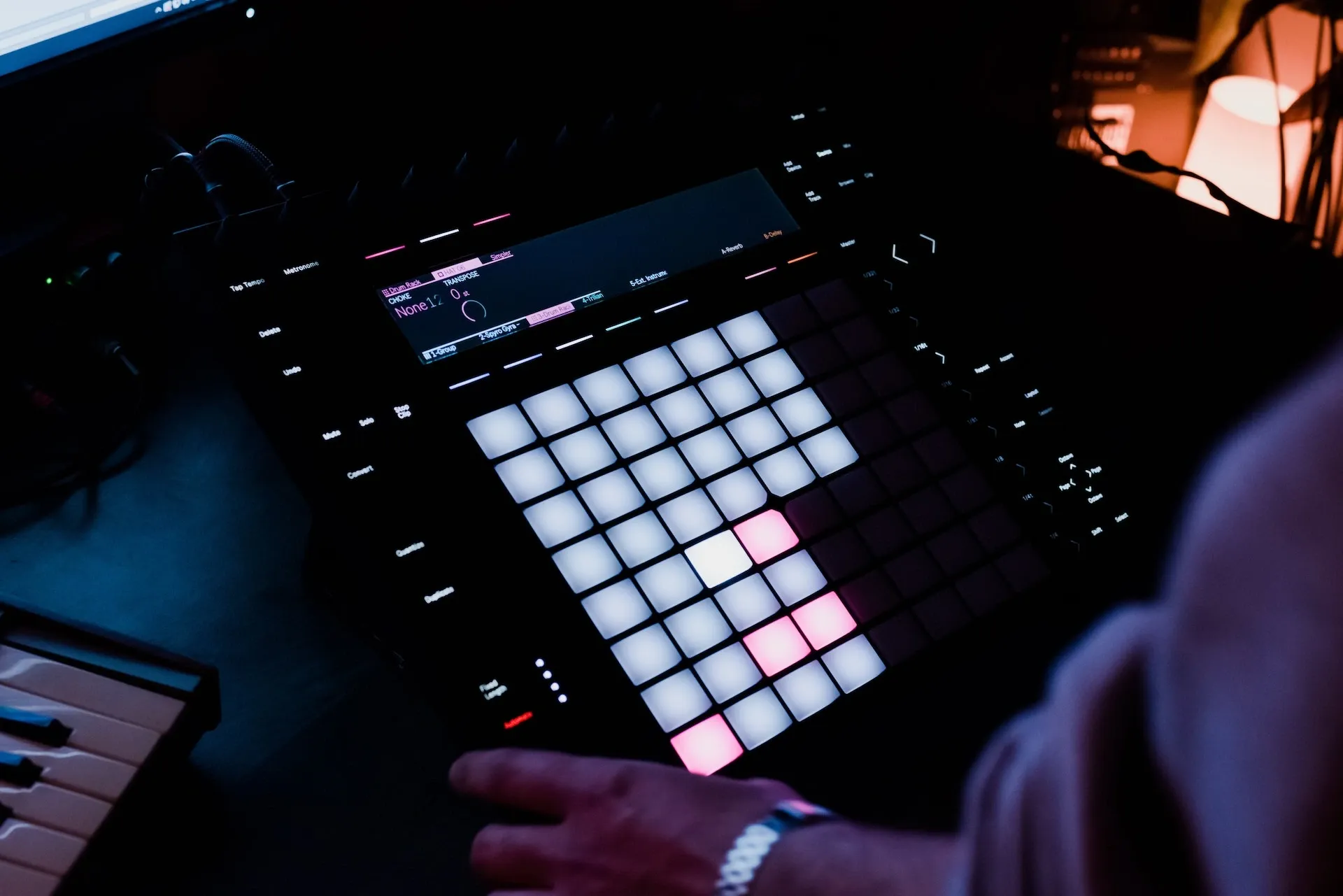What is mixing and mastering, and why is it important?
Ever asked yourself ‘what is mixing and mastering in music?’ We’ll run through the basics today, with some help from our mastering engineer.

As a music creator, you want your tracks to sound as true to your vision as possible. That’s where mixing and mastering comes in – let’s find out what those terms mean, why they’re important, and how they’re done.
What is mixing in music?
Within music, you’ll often hear the expressions ‘mixing’ and ‘mastering’ being used to explain the same thing. It can get confusing, but there are clear differences between the two. Let’s start with mixing.
Music recording sessions are often done via multitrack: each sound source is recorded separately, then assembled as a ‘complete’ track.
As an example, a traditional pop or rock band will record the bass, guitar, drums, vocals and keyboard separately. Once they nail their takes, the band will hand the tracks over to a mixing engineer, who'll assemble the final mix in a DAW (digital audio workstation) like Adobe Audition.

Mixing is the technique that takes individual sounds, also known as stems, and blends them the best they can into a final, ‘mixed’ track. It happens at the start of the post-production process, and if you’re mixing an album, the mix will sound cohesive when listening through each song. This is achieved by adjusting and balancing the different levels of each component, including EQ, reverb, compression, panning, delay and more.
This is generally done by a professional mixing engineer. Once the work is done and everybody’s happy with the result, it’s time to master the track. More on that in a minute, though!
What are the best examples of mixing?
There’s no such thing as a ‘perfect’ mix, as it’s often subjective. However, there are a few golden examples you can hold up as best-practice mixes – mixes to aspire to, where the sound is so crisp you’re blown away every time you listen.
Starting with albums, let’s go with, well, the best-selling album of all time: Michael Jackson’s ‘Thriller’. It’s routinely namechecked as one of the best-mixed records out there, with mixing engineer Bruce Swedien reaching legendary status for his work on the project.
When talking about individual tracks, there are way too many to name. However, some first-class examples include Queen’s ‘Bohemian Rhapsody’, Led Zeppelin’s ‘Stairway to Heaven’, and ‘Aja’ by Steely Dan.
These tracks all feature complex mixes where harmonies, vocals and different instruments all blend perfectly. There’s a lot going on, but the mix is never overbearing or confusing – it’s clean as a whistle.
What is mastering in music?
We’ll chat to mastering engineer – and Epidemic Sound employee! – Henke Jonsson in a few minutes, but one thing he describes beautifully is mastering as ‘framing’. The painting is complete with the mixing, but how do you find the perfect frame to hang it on the wall? Mastering!
So, let’s say you’ve nailed the mix – now it’s time to transfer the recorded audio as one file to a storage device. This file is known as the master. It’s from this file which all copies are produced, whether that be for streaming, vinyl, cassette, CD, or for the seven people out there still using MiniDisc.

Mastering requires both a critical ear and technical skills from the engineer. If you’re mastering an album, the goal is to enhance the overall sound, tweak aspects of the mix (like levels and tone), and ensure everything’s just right. The engineer often applies techniques like equalization and dynamic range compression to optimize the result.
The listening environment, as well as speaker accuracy, will play an important role. Mastering with the best equipment you can get your hands on will probably result in a better master overall, as you need to hear what you’re working with!
What are the best examples of mastering?
It’s a little harder to pinpoint best-mastered albums compared to mixing, but there are a few prime examples. Records like Kendrick Lamar’s ‘To Pimp a Butterfly’ and Daft Punk’s ‘Random Access Memories’ are often cited as some of the best, as the dynamics are oh-so-on-point. The balance across the frequency spectrum is top notch on both albums, too, lending them that ‘expensive’ sound.
Is mastering necessary?
As we covered earlier, mastering is the post-production process after mixing. If your mix brings the ingredients together, the master is the garnish, the sauce, the cherry on top – it ties everything together in one neat, unifying package.
Even if you’re recording something intentionally lo-fi – think of DIY punk or underground metal – it’ll still need to be mastered. If you want to learn how to master songs, be sure to invest in your listening environment. Buy a good pair of speakers and give yourself the best chance to hear all the details!
Is mastering harder than mixing?
When asking professionals about this, the answer is almost always the same: learning how to mix songs and how to master songs are two different skills. Mastering usually takes less time, but that doesn’t mean it’s easier. They’re both their own crafts – art forms, if we were to be so bold – which need to be perfected for your music to sound top-dollar.
Want to hear some elite-tier mixing and mastering work? Check out our catalog of 40,000 tracks below.

A chat with mixing and mastering expert Henke Jonsson
Henke started his mastering career at the Cutting Room in Solna, Stockholm, back in 1997. He left for a position at ABBA’s legendary Polar Studio, before starting his own mastering studio just across the street in 2005.
He’s worked with everyone from cult Swedish bands like Bloodbath, Grave and Disfear, right through to household names like ABBA, Rammstein, and Robyn.
In 2018, Henke joined Epidemic Sound as a consultant, and became an employee in 2022. All those 40,000 tracks we mentioned? Henke’s main responsibility at Epidemic Sound is heading up our catalog’s mastering, making guidelines, and supporting our other amazing engineers when needed. Let’s pick his brain!
Q: How do you know if a track is well-mixed and mastered or not?
A: A great-sounding track is determined by the artist or producer. If I succeed in accomplishing their idea, that's the home run. That doesn’t mean that everyone else thinks it sounds good. Sometimes, really strange-sounding audio is the goal.
But really, great performances drive the listening experience – goosebumps rarely come from something that was put together by scientists. Science can’t make 1 + 1 = 3. Great artists can.
Q: Is there any specific genre you prefer working with?
A: Not really. But I grew up listening to bands like Pink Floyd and Rush, so I have a thing for epic music with changing scenery. Real instruments played by great musicians. But then again, working with The Knife’s albums was so much fun. So much talent in a completely different way! For me, The Knife changed stuff. That’s really impressive.
The ‘We Sweat Blood’ album with Danko Jones was also great. Working on Celine Dion’s ‘I’m Alive’ was special, of course. And Tonbruket! Chrissie Hynde. Hellacopters! Mustasch! Roxette! Thåström! So much great music over the years. I basically love working with it all. Maybe it’s the variation that does it. And the love for music!
Q: You’ve worked on music for massive artists like ABBA and Rammstein. How much control do you have there, and what input do the artists have?
A: That varies a great deal. Some are really interested and some just trust me. With Rammstein, it was through correspondence. I make the work, they listen and give feedback from their own studios. Others want to join in the studio session and be a part of the progress. That happens more rarely, nowadays. But ten years ago, the artist or band almost always participated.
Q: How does mixing and mastering work at Epidemic Sound?
A: Mixing is done either by the artist or an external mixing engineer. I never mix music for Epidemic Sound. I do, however, sometimes act as a resource for the mixer. If they have questions or need input, I try to help in any way I can.
When the mixing is done, it’s sent for approval to Epidemic Sound. In our studios, the responsible A&R accepts the mix, or requests revisions. When the mix is accepted, it's sent to me or another mastering engineer for mastering. Sometimes there’s a lot to improve; sometimes almost nothing, audio-wise.
After that, I make sure all the stems are in line and synced. I also make sure that the sum of the individual stems equals the main mix, so if you put the drums, bass, instruments and vocals together, it'll sound like the main version, level-wise. When my job is done, the track goes back to the A&R for final approval.

Q: What’s unique about working as a mastering engineer and studio manager at Epidemic Sound?
A: The most amazing thing about working for Epidemic Sound is the variety of music. Being a true music lover, this is a dream come true. I get to hear all kinds of fantastic music from great jazz performers to African, Latin, and Indian music, pop music, rock ‘n’ roll… it just goes on and on.
It’s like watching the best TV show ever – ‘The Wire’ – but it never ends! It’s like every day there’s a new episode. Sure, I sometimes get frustrated over a character – McNulty, of course – but I’m always glad to see they’re back.
What are some common misconceptions about mixing and mastering?
A: That it will sound better if it’s done in New York!

So, now that we've learned what mixing and mastering are, why they’re important, and what experts like Henke think, why not hear it for yourself? Explore Epidemic Sound's massive catalog below and, if you want to use it in your content, be safe in the knowledge that all financial rights are included.
Our catalog is high-quality, affordable, and safe. An Epidemic Sound subscription goes beyond royalty-free music, removing the headache of licensing and freeing you up to do what you do best. You can enjoy the safety of our license hand-in-hand with our massive catalog of 40,000 tracks, covering just about every genre you can think of. You’ll also gain unlimited access to our advanced search functions — finding the right sound’s never been easier.
It’s better than royalty-free. It’s worry-free. Get started with Epidemic Sound below.

Related posts:

